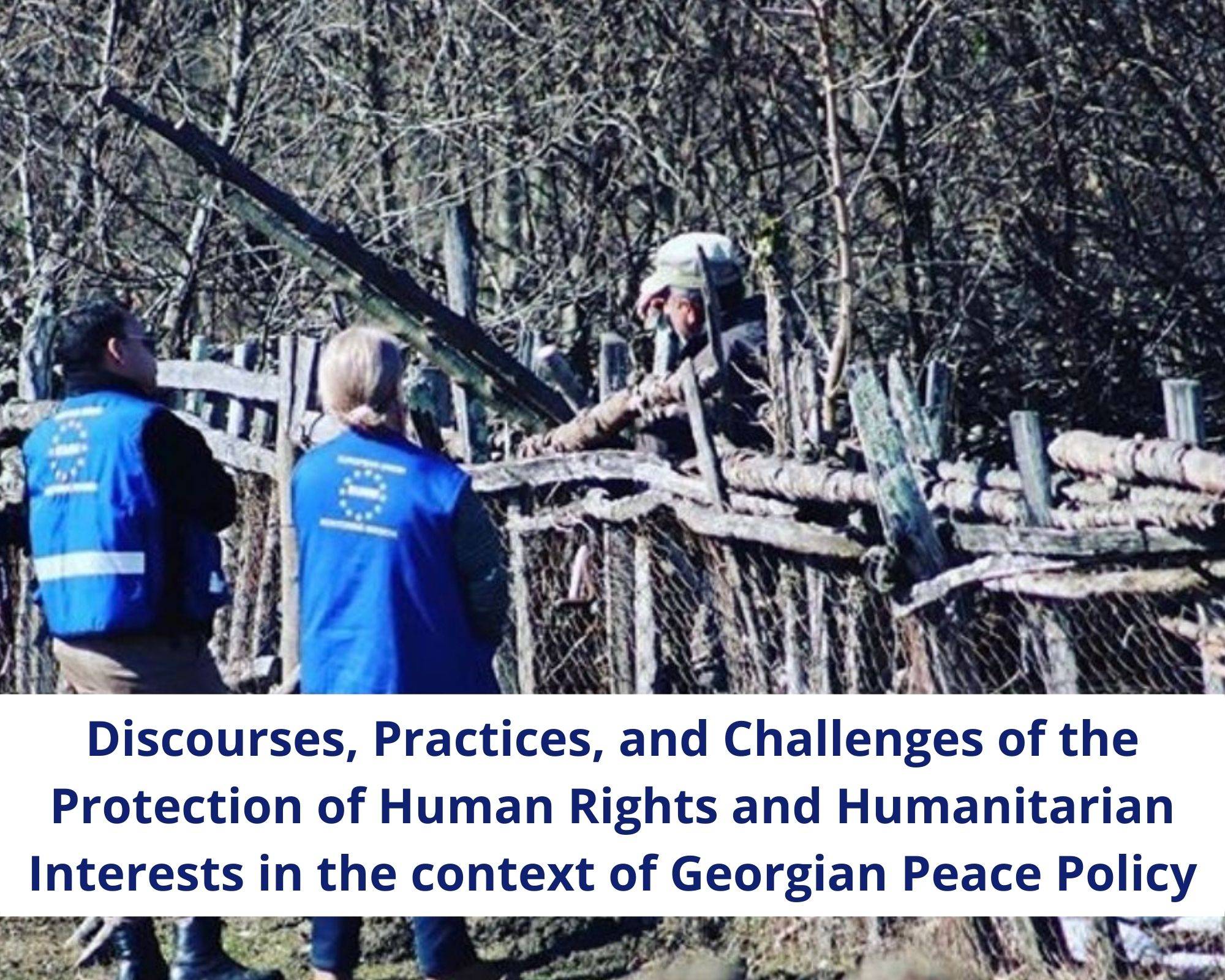საერთო ცხელი ხაზი +995 577 07 05 63


Photo: (EUMM)
Introduction
The importance of protecting human rights and managing humanitarian crises in conflict regions has become even more apparent in recent years. In the absence of appropriate mechanisms for responding to systemic human rights violations, individual tragedies leave our society feeling hopeless and state peace policy works in a reactive regime. The gross violations of human rights, including torture and killing of Archil Tatunashvili, murdering of Giga Otkhozoria, vague cases of illegal killing of Irakli Kvaratskelia and Davit Basharuli, three years of isolation and persecution of Tamar Mearakishvili, human rights violation practices in Tskhinvali prison, persecution of journalist Irina Kelekhsaeva, and other gross violation cases, on the one hand, increases the perception of inactivity and hopelessness and on the other hand, raises the need for revision of existing policies and radical changes in the agenda.
Nevertheless, there is no discussion on new political alternatives and discourses in political circles, and the issues of conflict transformation and the protection of the rights and well-being of the people living there do not fall within the priorities of Georgian politics. These issues are also less prioritized in everyday politics and work of the Government.
Isolation and humanitarian crisis, frequent cases of kidnapping and illegal detention, long-term closure of de-facto borders and freedom of movement, lack of access to education and health services – this is a short and restricted description of human rights and humanitarian situation in conflict regions. In parallel to the aggravation of the rights situation, more questions arise as to why we appeared to be unprepared for humanitarian crises, what plans exist to address them, why human rights monitoring and response mechanisms are not working, what political means were created and operated so far and what led to their abolition.
The only controlling mechanism for the government to respond to serious violations, isolation, and the crisis today is to raise the alarm with international organizations and partners, as well as the hotline of the European Union Monitoring Mission (EUMM). It is clear that these mechanisms are ineffective and are not an effective way to change the situation and resolve crises. Clearly, these mechanisms are ineffective means for crisis management and to change the existing situation.
The purpose of this article is to explain how human rights as well as humanitarian aid discourses and practices developed in Georgia's peace policy, what initiatives existed in the post-conflict negotiation process, and where this process is stalled as of today. The purpose of this article is to highlight the shortcomings in the peace policy and those inevitabilities, that have weakened the process of conflict transformation and the protection of the rights and well-being of people affected by the conflict.
The article is prepared within the project “Supporting peaceful conflict transformation by strengthening the human rights discourse on the conflicts in Georgia" supported by the Heinrich Boll Foundation Tbilisi Office.

The website accessibility instruction